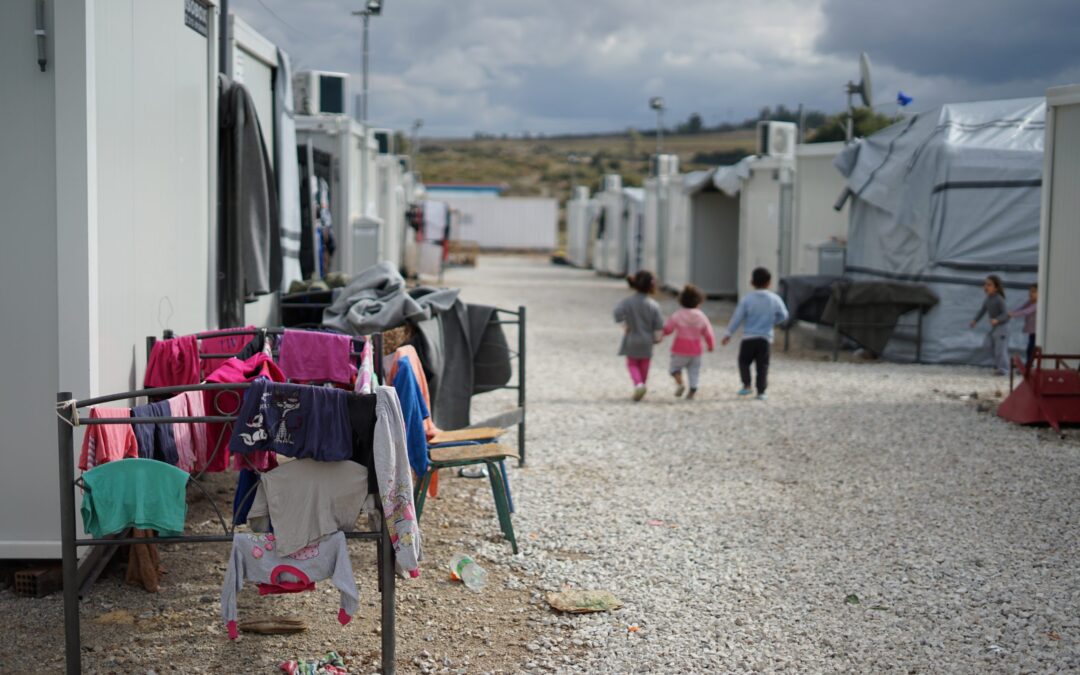
Jun 2, 2021 | Agendas, Events, News
On Thursday 3 June 2pm CET, the International Commission of Jurists (ICJ) together with Saskia Bricmont, Greens/EFA MEP, will hold an online event on immigration detention of children in the EU, the current situation and implementation of the legal framework in EU countries. The event will consider ways forward and alternatives to detention, including in light of the new proposals of the EU Pact on Migration and Asylum and EU strategy on the rights of the child.
The event is organised on the occasion of the launch of the CADRE project (“Children’s Alternatives to Detention protecting their Rights in Europe”), seeking to promote the expansion, implementation and improvement of viable and effective alternatives to detention for migrant children in full respect of their rights in the EU, co-ordinated by the ICJ in partnership with seven national and international partners:
See the full agenda of the event here: CADRE_public launch event agenda
To register please fill in the form online here. Registration closes 3 pm CET 2 June.
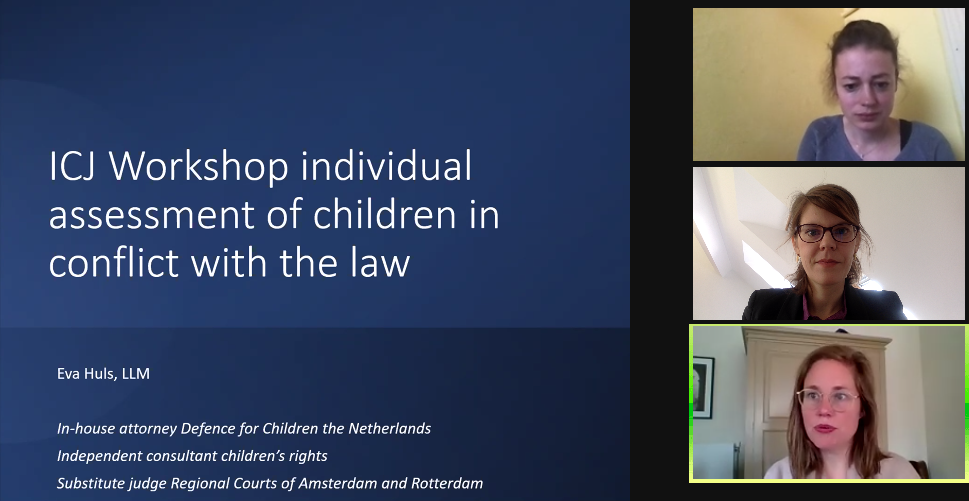
Apr 29, 2021 | News
It is important to involve children suspected or accused of breaching the law, in the proceedings in a rights-based way, agreed judges, prosecutors and probation officers during a seminar for Czech and Slovak professionals, organised by the ICJ and Forum for Human Rights on 28 and 29 April.
The individual assessment according to Article 7 EU Directive 2016/800 on procedural safeguards for children suspected or accused in criminal proceedings should serve as a genuine right of the child, rather than as evidence, the seminar was told.
Speakers at the seminar emphasized that the actions of children often only reflect how they were treated by adults – including by parents, teachers, or public authorities, who have failed to address systemic inequalities and situations of discrimination. The contact of the child with the justice system provides an opportunity to help the child, to show them that they have rights and an important role in the society, and involve them actively in the proceedings, experts said. The environment in which the child grows up may have an important impact on the child’s behaviour.
During the seminar, professionals and experts discussed a number of practical questions, such as how to work with information in a child’s case: how sources in reports and assessments for the court should be as objective as possible, up to date, and how sources should be verified, so that information is not doubled or amplified in the individual assessments.
A considerable part of discussion in the seminar was dedicated to restorative justice principles and how these can serve professionals in contact with children in the justice system, in order to ensure the rights-based approach.
Restorative justice experts pointed out that most children grow out of crime without any intervention, and so minimum intervention is usually the best approach to prevent crime in the future. They explained the benefits of giving the child the feeling of control and involving them in the search for solutions, so they will feel respected, and are more likely to see the process as fair and are more likely to follow the decision made.
Practical exercises were part of the seminar and participants actively engaged and shared their concerns and challenges they encounter in their work.
The two seminars gathered over 50 judges, public prosecutors, probation officers and experts from the Ministry of Justice from both countries working in the field of child justice or family law. Experts included Mikiko Otani, ICJ Commissioner and member of the Committee on the Rights of the Child, Dainius Puras, former UN Special Rapporteur on the Right to Health, as well as judges and academics other EU Member States and from the European Forum on Restorative Justice, FORUM and the ICJ.
See the full agenda here:
In English
In Czech
The PRACTICE project is implemented by the ICJ-EI and Forum for Human Rigths aims at building the capacity of judges and other relevant professionals to ensure effective individual assessments of children in criminal proceedings in the Czech Republic and Slovakia. It supports the implementation of EU Directive 2016/800, as well as international human rights law obligations of the states concerned. In the second part of the project the ICJ-EI will draft and publish recommendations on individual assessments of children with specific vulnerabilities, to support an EU-wide interpretation and application of Article 7 of Directive 2016/800, in light of international human rights law.
This project was funded by the European Union’s Rights, Equality, and Citizenship Programme (2014-2020). The content of this publication represents the views of ICJ only and is its sole responsibility. The European Commission does not accept any responsibility for use that may be made of the information it contains.
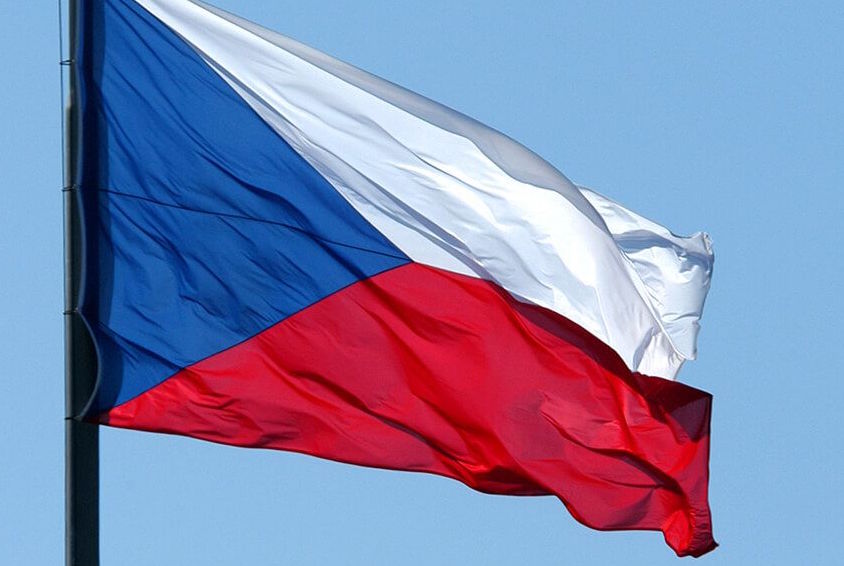
Mar 29, 2021 | Agendas, Events, News
Judges play a crucial role in protecting the rights of migrants and asylum seekers, and refugees , experts emphasized at a conference for judges in the Czech Republic held by the International Commission of Jurists (ICJ), Forum for Human Rights and Czech judicial academy on 22-23 March 2021.
The right of asylum seekers to an effective remedy is guaranteed in international and EU law, and it requires a full and ex nunc examination of both facts and points of law. Conference participants discussed how specific vulnerabilities of people in asylum proceedings must be identified as early as possible and the important role that judges play in ensuring that this is the case.
Speakers emphasized that the “best interest of the child” principle, and the right to private and family life, have to be taken into consideration when termination of residence of migrants is in question.
The training, “Selected discourses of asylum and migration law from the international and national perspective” addressed relevant topical questions on the protection of human rights in asylum proceedings in the Czech Republic. Participants included international experts and about 100 participants from among Czech judges and judicial assistants. The speakers included highly experienced European judges, and Czech legal experts and judges. The event was co-organised with Forum for Human Rights, a Czech and Slovak nongovernmental organization, and the Judicial academy of the Czech Republic.
Background
The event took place as part of the FAIR PLUS project. You can find the agenda of the national training here and more details on the issues covered by the training here.
Watch on YouTube: FAIR PLUS Project: Selected discourses of asylum and migration law form the international and national perspectives.
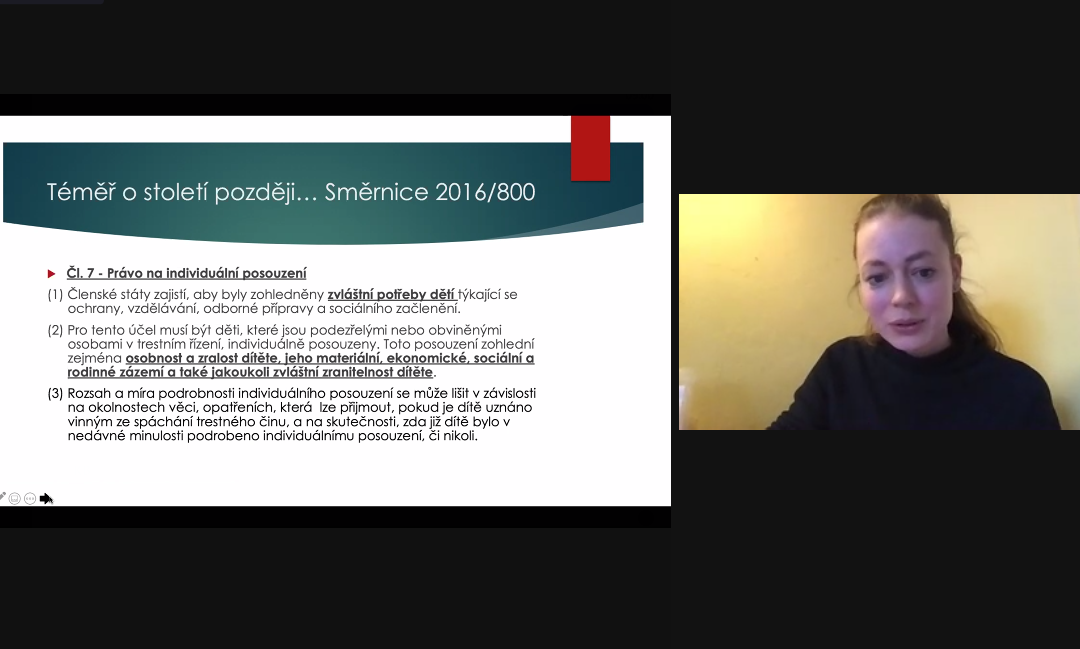
Feb 16, 2021 | Agendas, Events, News
Today, the ICJ in collaboration with Forum for Human Rights (FORUM) is holding an online training seminar on the rights of children who are suspected or accused of violating the law within the European Union.
The training (16-18 February 2021) focuses on the right of a child in conflict with the law to an individual assessment, under Article 7 of EU Directive 2016/800 on procedural safeguards for children suspected or accused in criminal proceedings. The individual assessment of the particular circumstances and needs of the child provides an important guarantee which, if implemented through a rights-based approach, can ensure that the best interests of the child are protected and that the child’s rights are upheld throughout the criminal justice process.
The training brings together some of the key professionals involved in implementing individual assessments in the Czech Republic and Slovakia – over 20 lawyers and 20 social workers from both countries working in the field of child justice. Speakers at the training will consider the approach to the individual assessment in light of international human rights law as well as experiences from other EU Member States. They will explore the potential of the restorative justice approach to ensure that the child has practical and effective opportunity to actively participate in the proceedings.
Speakers include Mikiko Otani, ICJ Commissioner and member of the Committee on the Rights of the Child, Dainius Puras, former UN Special Rapporteur on the Right to Health, as well as judges and academics other EU Member States and from the European Forum on Restorative Justice, FORUM and ICJ.
See the full agenda here:
in English
in Czech
in Slovak.
This project was funded by the European Union’s Rights, Equality, and Citizenship Programme (2014-2020). The content of this publication represents the views of ICJ only and is its sole responsibility. The European Commission does not accept any responsibility for use that may be made of the information it contains.
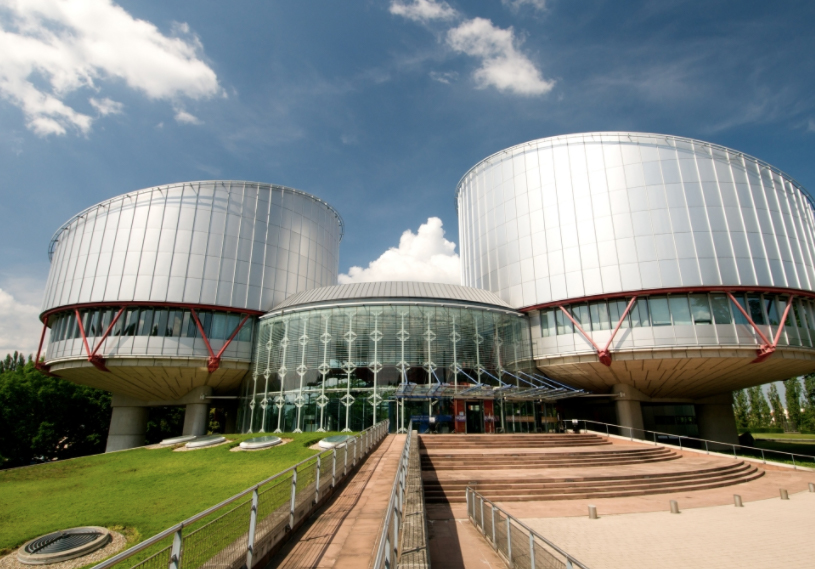
Dec 8, 2020 | News
The ICJ with partners has intervened in European Court for Human Rights case concerning collective expulsions, including of children from Croatia.
The ICJ and partners (European Council for Refugees and Exiles, Dutch Council for Refugees, AIRE Center and the Hungarian Helsinki Committee) intervened today in the case S.B. v Croatia (Application No. 18810/19) at the European Court for Human rights.
The case concerns collective expulsion of migrants, including children, from Croatia to Bosnia and Herzegovina, and excessive use of force.
In the intervention, the organisations have highlighted international legal standards regarding the principle of non-refoulement and prohibition of collective expulsions. They also point to the need to take into account specific vulnerabilities of asylum seekers and children in order to guarantee enhanced safeguards afforded to them under international and EU law.
The organisations also note that in operations aimed at imposing restrictions on freedom of movement or deprivation of liberty to carry out an expulsion, the use of force should only be employed exceptionally and subject to strict necessity and proportionality requirements. The lack of resistance to law enforcement officials, per se renders force unlawful.
Please find the third party intervention here.









